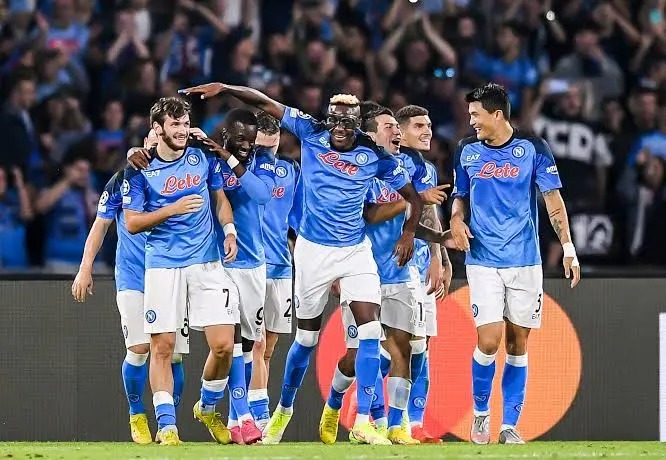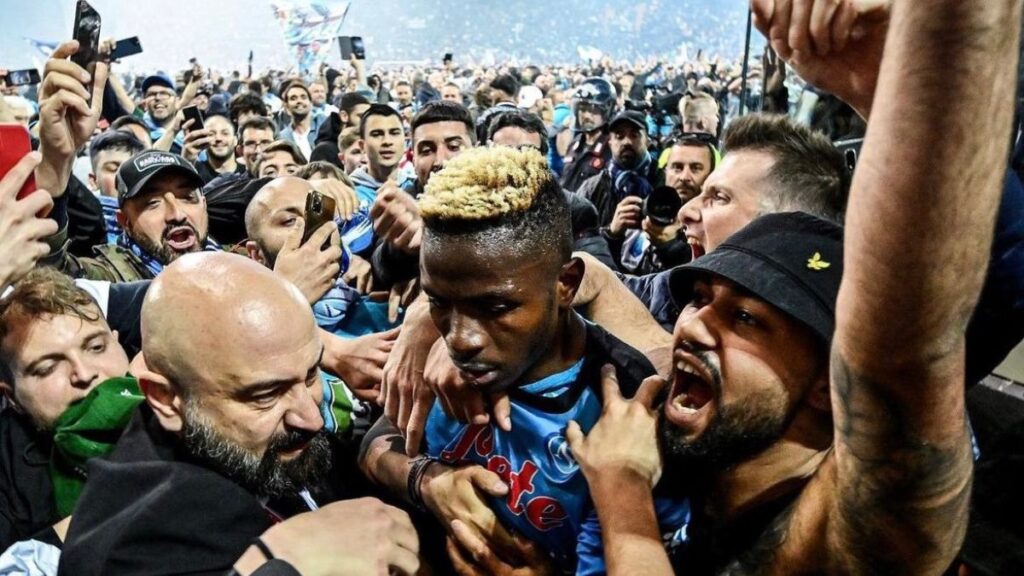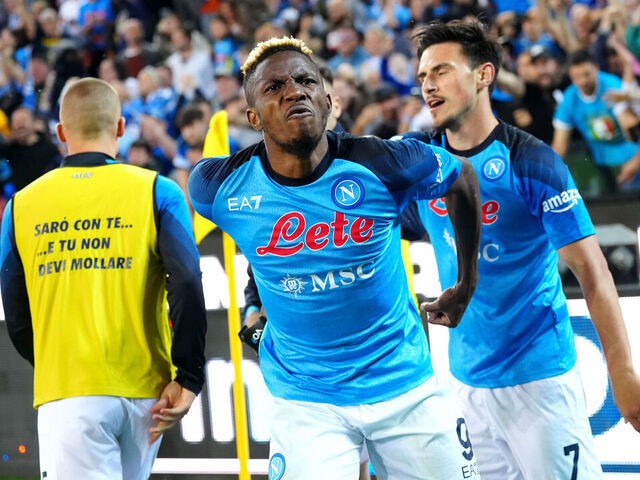
The first time Napoli won the Serie A title, in 1986-87, some of the Partenopei fans sprayed graffiti outside one of the cemeteries in the city. The message was brutally simple: “You don’t know what you missed.” A generation on, with Maradona sadly no longer with us, and memories of the two title wins he inspired fading, Napoli’s footballers have scripted an even more remarkable chapter in the club’s history.
When Maradona was playing, Serie A was the richest and most influential league in the world, but there was still a semblance of a level playing field. In the 1980s, six different clubs, including rank outsiders like Hellas Verona, won the Serie A title. Since Roma’s triumph in 2000-01, under the guidance of Fabio Capello, the trophy has been shared between Juventus and the two other Italian giants, AC Milan and Internazionale. Others, like Roma, Napoli and Atalanta, occasionally threatened to break through the glass ceiling, but it never happened.
Until now. What Napoli have done under Luciano Spalletti is little short of miraculous. Bear in mind that before the season began, the fans were almost ready to revolt. When the squad was presented in pre-season, the message directed at Spalletti and the team owner, Aurelio de Laurentiis, was “Wake up!”
The supporters were incensed at the summer exodus that had seen club legends like Lorenzo Insigne, Kalidou Koulibaly, and Dries Mertens leave. Fabián Ruiz, the Spanish midfielder, was another to exit. Insigne, the pockey dynamo who made a career out of cutting in front the left wing and curling the ball into the corner of the net, was a local hero adored in the manner in which Roma fans had once venerated Francesco Totti. Mertens was the all-time leading goal-scorer, and Koulibaly their defensive rock.

The players that Cristiano Giuntoli, the sporting director, brought in were hardly household name. But now, the rest of Europe looks on enviously. De Laurentiis will not want to cash in, but if Napoli were to sell now, they would easily make six to seven times what they invested last summer. Giovanni Simeone, son of Diego, came on loan from Verona, while Giacomo Raspadori came from Sassuolo. But the two key permanent signings were at prices that seem ludicrous now.
They paid just €10M for Khvicha Kvaratskhelia from Dinamo Bitumi in Georgia, while the outlay on Kim Min-jae, the South Korean centre-back who played for Fenerbahce in Turkey, was €18M. Kim has been a colossus in a defence that has conceded just 23 league goals – the best record in the division. Koulibaly, who he replaced, has had a shocking season in a mess of a Chelsea side.
But it’s Kvaratskhelia that has been the revelation of the European football season. There was a time, four decades ago, when Georgian stars were the key players in the formidable Soviet Union team. In the Ballon d’Or voting for 1981, Ramaz Shengelia, a forward, was seventh, with Alexsandr Chivadze, a centre-back who roamed forward frequently, in eighth.
Just outside the top ten in 11th was David Kipiani, whose career was sadly ended by a serious injury a couple of months before the 1982 World Cup. The Dinamo Tbilisi team that they were part of thrashed Liverpool, then the finest team in Europe, 3-0 in 1979. Those days are long gone, but the man the Napoli faithful now call Kvaradona is further evidence of the football talent in that part of the world.
Kvaratskhelia has 14 goals, including 12 in Serie A, and he leads the way in the league with 10 assists. His combination with Victor Osimhen, the powerfully built Nigerian striker, has bordered on the telepathic, and it’s just a shame that their Champions League campaign floundered against Milan because of an injury Osimhen picked up on international duty.
Osimhen’s 26 goals for the season include a chart-topping 22 in Serie A. When he’s at his best, his pace and strength make him almost unplayable, like Didier Drogba in his prime. He can bully the strongest defenders, and has an eye for the spectacular finish.
In the years ahead, these players will also have their murals painted on the city’s walls. There’s scarcely a quarter in Naples that doesn’t have one of Maradona, hardly surprising when you consider what he achieved in a city that was once mocked for its poverty, cholera and the Camorra – the organised crime syndicate.
When Maradona arrived in Naples after a largely disappointing two years in Barcelona, Juventus and the two Milan giants had better squads, as did Roma, Torino and Verona.
But once Napoli assembled an ensemble cast worthy of the great playmaker in their midst, they finished third, first, second, second and first in consecutive seasons.
Till now, those had been the only two Serie A titles in their history. Maradona’s World Cup heroics with Argentina in Mexico in 1986 spanned less than a month. There’s little doubt that his best years, the full flowering of his genius, happened in Naples. It’s just a pity that most of us never saw them, played out as they were in the pre-satellite-television years.

Years later, after his tax-evasion cases were settled and he journeyed back to the city that so adored him, the reception Maradona received was compared to that accorded to a Pope.
Such is the power and lure of the richest European clubs now that Kvaratskhelia, Osimhen and Kim may not stay in Naples long enough to enjoy such exalted status. But their place in the city’s football fabric is now secure. As is that of Spalletti, one of the most innovative and adventurous coaches of his generation, who has finally added to the trophies he won with Roma 15 years ago.
Back in 1991, less than a year after Napoli’s last title win, and just as Maradona’s career was beginning its descent into hell, Eric Clapton wrote Tears in Heaven as a tribute to Conor, the four-year-old son he lost. In December 2020, within days of Maradona’s tragic passing, de Laurentiis and Luigi de Magistris, the city’s mayor, convinced the City Council to rename the Stadio San Paolo as the Stadio Diego Armando Maradona.
Maradona was an emotional man, who always played and spoke with his heart on his sleeve. On Sunday night, when the Partenopei faithful gather in the stadium named after him to laud their new heroes as they take to the field against Fiorentina, you can be sure of one thing. There will be tears in heaven.



